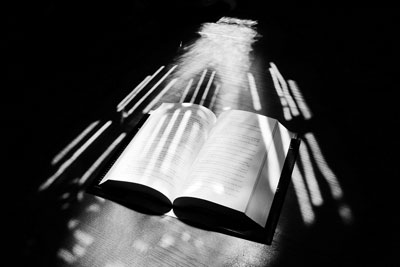All Nonfiction
- Bullying
- Books
- Academic
- Author Interviews
- Celebrity interviews
- College Articles
- College Essays
- Educator of the Year
- Heroes
- Interviews
- Memoir
- Personal Experience
- Sports
- Travel & Culture
All Opinions
- Bullying
- Current Events / Politics
- Discrimination
- Drugs / Alcohol / Smoking
- Entertainment / Celebrities
- Environment
- Love / Relationships
- Movies / Music / TV
- Pop Culture / Trends
- School / College
- Social Issues / Civics
- Spirituality / Religion
- Sports / Hobbies
All Hot Topics
- Bullying
- Community Service
- Environment
- Health
- Letters to the Editor
- Pride & Prejudice
- What Matters
- Back
Summer Guide
- Program Links
- Program Reviews
- Back
College Guide
- College Links
- College Reviews
- College Essays
- College Articles
- Back
Modern Sexism
Throughout history, feminist movements—from women’s suffrage to breaking the glass ceiling—have sought one thing: equality between males and females. Today, many people argue that this goal has been nearly—if not already—reached.
I disagree.
Being thoroughly immersed in pop culture as I am, I’ve seen good things happen regarding feminism and gender equality. The bad, however, often outnumber the good. “Stay in the kitchen” and “go make me a sandwich” jokes aside, some elements of modern pop culture are downright viciously sexist. The entertainment industry especially glorifies the objectification and mistreatment of women, and consumers often don’t even notice how awful some of these “modern classics” are. Some of the worst offenders are present in modern literature, of all things, and the morals some of them display honestly scare me.
Take teen fiction. Many common themes and character traits run through the multitude of young adult novels that now populate bookstores and libraries. For example, Becca Fitzpatrick’s recently concluded Hush, Hush series, which details an angelic romance, is no exception. Patch, the main male character, openly stalks protagonist Nora and yet is seen as sexy rather than creepy. Sound familiar? I think a certain brooding vampire would like his modus operandi back, Patch.
Yes, the rampantly trendy vampire series, Twilight, could be seen as the catalyst that brought all these worrisome themes to the forefront. It’s no secret that paranormal romance became mainstream after these books took off, and it doesn’t take much sleuthing to discover that most of the motifs now found in most teen fiction books—at least those aimed at girls—are present here. Glorification of red flag behaviors such as stalking and emotional manipulation? Check. Touting of the man in the relationship as the “sensible” one? Of course. Edward openly admits that he’s dangerous for Bella, but for her, that only adds to the intrigue. What woman doesn’t want a man who constantly endangers her life?
Speaking of, we also have the wildly popular Fifty Shades trilogy. A reader of these novels can note the distinct similarities between it and the Twilight series. This is hardly a coincidence, as the trilogy began as a fanfiction of Stephenie Meyer’s quartet. While the Fifty Shades series is set on a premise of detailing a BDSM relationship, the repeated instances of controlling behavior and even physical and mental abuse stood out the most to me. Hacking into the GPS chip of someone's phone to stalk them isn't cute. It's disturbing.
Ana, the protagonist, frequently mentions that she is afraid of her partner Christian, and the language she uses to describe her thoughts and feelings during some of their BDSM scenes put me uncomfortably in mind of sexual abuse. Très romantique, yes? What woman doesn't want a partner who degrades and hurts her under the guise of a lifestyle whose main maxim is "safe, sane, and consensual"?
Many of the red flags of an abusive relationship wave proudly on the pages of these novels, but the scary thing is, they're not seen as warning signs. They're seen as expressions of romance, or maybe of the protagonist's innocence. Being in a relationship because you want to "fix" your partner isn't good. Didn't we learn this back in health class? If someone is pressuring you to do things that you don't want to, get out of the relationship. Don't cling to it like it's the last life preserver on the Titanic. Christian Grey honestly admits there’s something wrong with him—he’s in therapy for various traumas that occurred in his past, and it’s quite evident that said therapy isn’t doing much for him. Yet Ana eagerly returns time and time again.
Defenders of the series will say the relationship is harmless and that it’s teaching women to be more in control of their sexuality. I could get behind a book series that did that. However, Fifty Shades is not that series. It portrays the lifestyle it claims to embody incorrectly at best and presents an honestly mentally unstable man as the ideal mate. Abuse is not love. Abuse is not sexy. But if the line continues to be blurred as it is in this series, who’s to say that, one day, they won’t be one and the same?
I am terrified for my generation. What kind of people are we going to become if this is the message we're being fed every day of our lives? What are girls going to think is acceptable in a relationship if the only examples they have are couples like Edward and Bella? And what if boys see this and draw the conclusion that women enjoy being treated this way, and thus modify their behavior because they think it makes them more desirable?
This is not a world I want to live in.

Similar Articles
JOIN THE DISCUSSION
This article has 1 comment.
